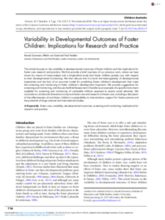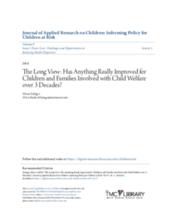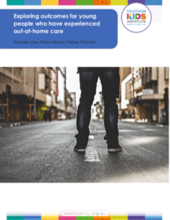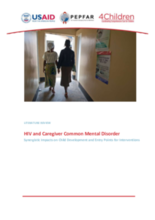Displaying 211 - 220 of 485
This paper aims at describing how caregivers at an institution for motherless infants in rural Tanzania perceive infancy, caring and sensitivity in their everyday context.
Through this study, data were collected through interviews with 23 care leavers in Ghana to examine their challenges and the factors that influence their coping mechanisms.
This 5-minute video from the Center on the Developing Child at Harvard University explores the development and use of core capabilities — known as executive function and self-regulation skills — from early childhood into adolescence and adulthood.
The first online consultation on the Nurturing Care Framework for early childhood development was held between 24th January and 6th February, a summary of the responses submitted will be available in March.
This article focuses on the variability in developmental outcomes of foster children and the implications for foster care research and practice.
The Nourished and Thriving Children toolkit was designed by SPOON to build capacity among the foster care community in feeding and nutrition topics so that they are equipped to address challenges commonly experienced by foster children.
Reframing Early Childhood Development and Learning is a communications toolkit for building public support in Kenya for better child development policies and programmes.
This paper reflects on: what’s better or not after 30 years; whether legislation and financing are aligned with child welfare’s goals of safety, permanency and well-being; and what remains to be done to improve the outcomes of children and youth in foster care or otherwise involved with child welfare.
For this study, physical and mental health, school achievement, justice involvement and child protection contact were explored for three cohorts of children in Australia born between 1 January 1990 and 30 June 1995.
In this paper, the authors review published literature on the mental health status of mothers living with HIV (MLH) and how this affects their children; outline the pathways between maternal HIV, maternal mental health problems, and negative child outcomes; and then describe a number of intervention entry points that they argue have the potential to enhance impact across PEPFAR platforms.




